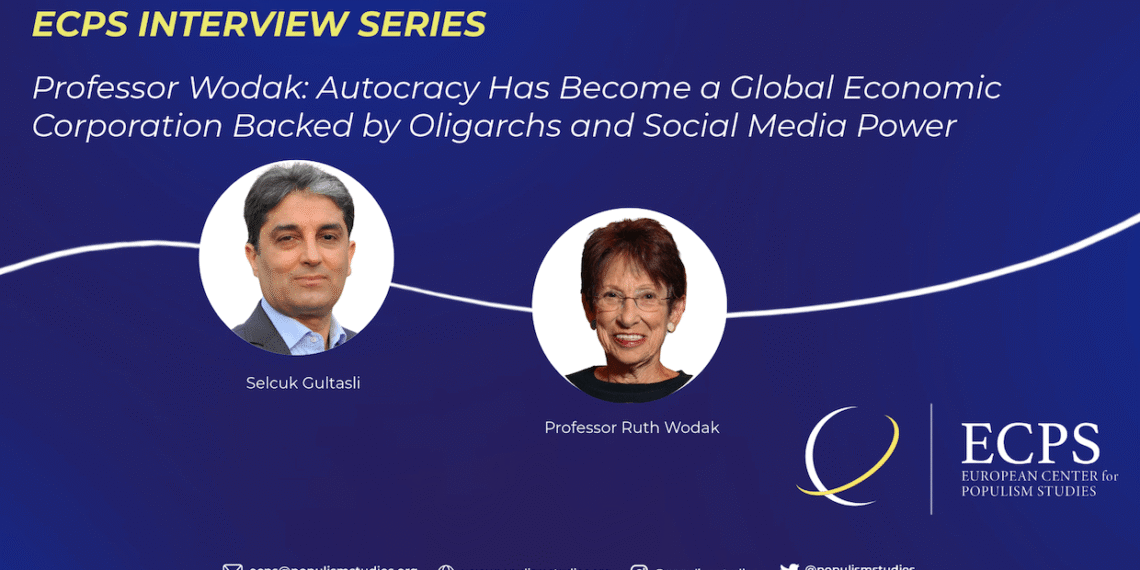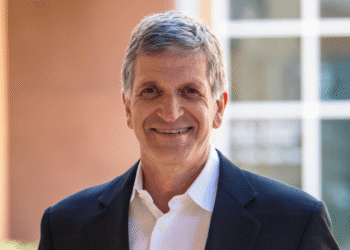In this powerful interview with ECPS, Professor Ruth Wodak warns that “autocracy has become a global economic corporation”—a transnational network where oligarchs, libertarians, and tech barons control discourse, distort truth, and undermine democracy. From Trump’s incitement of violence to Orbán’s fear-based migrant scapegoating, Professor Wodak outlines how authoritarian populists weaponize crises and social media to legitimize regressive policies. Yet she also defends the vital role of public intellectuals, urging them not to give in to “preemptive fear.” With deep insight into the politics of fear, techno-fascism, and discursive normalization, Professor Wodak’s reflections serve as both an alarm and a call to resistance in our increasingly volatile democratic landscape. A must-read for anyone grappling with today’s authoritarian turn.
Interview by Selcuk Gultasli
In a time when liberal democracies are increasingly challenged by authoritarian populism, far-right, disinformation, and escalating political violence, the voice of critical scholars has never been more urgent. In this in-depth interview with the European Center for Populism Studies (ECPS), Professor Ruth Wodak—Emerita Distinguished Professor of Discourse Studies at Lancaster University, affiliated with the University of Vienna, and a member of the ECPS Advisory Board—provides a sobering assessment of our contemporary moment. With decades of pioneering work on discourse, racism, and the far right, Professor Wodak, who is also one of the signatories of the “International Declaration Against Fascism,” published on June 13, 2025, alongside Nobel laureates, public intellectuals, and leading scholars of democracy and authoritarianism, brings both scholarly rigor and moral clarity to an increasingly fraught public debate.
At the heart of this conversation lies a stark warning: “We are facing a kind of global kleptocracy and oligarchy that owns social media and is, in some cases, part of governments,” Professor Wodak says. Drawing on Anne Applebaum’s recent book Autocracy, Inc., she argues that autocracy has evolved into a global economic corporation—one where power, capital, and algorithmic control are intertwined and weaponized against democratic norms. This nexus, she explains, enables “very powerful individuals, libertarians, and oligarchs—supported by governments—to wield enormous influence.”
Professor Wodak also elaborates on what she calls the “politics of fear,” a strategy used by populist and authoritarian actors to exploit or fabricate crises in order to manufacture scapegoats and position themselves as national saviors. “It’s a very simple narrative,” she explains. “There is danger, someone is to blame, I am the savior, and I will eliminate the threat.” From Donald Trump’s MAGA slogan to Orbán’s anti-migrant rhetoric, such narratives are not only emotionally charged but “discursively effective in obscuring regressive agendas while appearing to restore order.”
The interview further explores how fascist traits—particularly state-sponsored or paramilitary violence—are resurfacing even in democratic societies. Professor Wodak points to cases in the United States, Germany, Turkey, and Greece as troubling examples. “We do see that the government in the US is taking very violent actions,” she warns, referring to ICE raids and militia-linked violence under Trump. Similarly, she notes how “Golden Dawn in Greece only became scandalized after the murder of a pop singer—despite its long history of violent attacks on migrants.”
Yet amid these challenges, Professor Wodak emphasizes the indispensable role of public intellectuals. Despite increasing hostility, she insists, “one shouldn’t be afraid to speak out.” Indeed, she urges scholars and citizens alike not to succumb to what she calls “preemptive fear,” which “leads you to accommodate to some kind of danger which you envision—but which is actually not there.”
In this urgent and wide-ranging dialogue, Professor Wodak offers a powerful analysis of how authoritarianism is being normalized—and how it can still be resisted.


